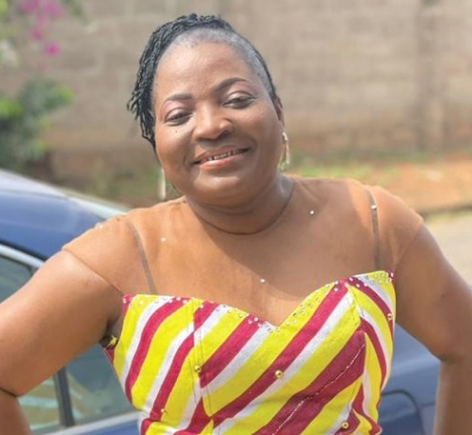
Nation risk having fewer female MPs — Gender specialist
The country risk having further reduction of female Members of Parliament (MPs) in the next Parliament that begins in January 2025, if the two dominant political parties in the country do not do anything to protect the seats of female candidates.
A Social Development and Gender Specialist consultant, Dr Miriam Rahinatu Iddrisu, who gave the warning in an interview with the Daily Graphic, has, therefore, advised the political parties to put in place action plans that would protect and support the few female parliamentary candidates that have qualified in their parliamentary primaries to contest the 2024 presidential and parliamentary elections.
She said they should also promote other female participants in their parties who had the interest of becoming parliamentarians in future.
Describing as highly inadequate the 40 female MPs in the current Parliament, which is likely to reduce further in the next session of Parliament following nine of them losing their seats in their party primaries, Dr Iddrisu said so far as leadership of women was concerned, the country should be making progress in the numbers instead of retrogressing.
NPP, NDC
The two dominant political parties, the New Patrotic Party (NPP) and the National Democratic Congress (NDC), each has 20 female MPs in the current Parliament making a total of 40 female MPs.
Unfortunately, at the recent parliamentary primaries of the two parties, seven out of the 20 siting female MPs of the NPP lost their bid to contest the national election with one opting not to contest again.
For the NDC, three female MPs lost their bid in the primaries.
Describing the number of losses of the women as significant, she said looking at the trend over the years, they were expecting a progression of the number from 20 each.
"For any country or democracy, it's important to have everybody on board, especially women, who formed a significant population of the country.
Not being part or having a reduction in their numbers has an impact on our democracy and the total development of the country," she warned.
Forward
Adding her voice to the call for the passage of the Affirmative Action Bill, Dr Iddrisu said the political parties were not doing enough to protect female candidates.
She, therefore, appealed to both the NPP and NDC to come out with better policies such as safe seats or quota systems that would push the agenda of women pointing out that, neither of them had such an agenda.
At their primaries, that were characterised by so much competition and acrimony, she said the two parties should reduce the filing fees for women that offer to contest in order to encourage a lot of women to contest and also be able to raise the amount.
She said Parliament should also ensure that at every point in time, it had, at least, a total of 25 per cent female MPs in order for the country to progressively move towards the 30 per cent target of women's representation in Parliament.
To the media, she called on them to sensitise and educate the public to appreciate and understand that leadership was not about being a man but about skills so if a woman had the skills, they should vote for them.
Commendation
Dr Iddrisu commended all the female sitting MPs who won in their party primaries, pointing out that knowing the kind of politics that went on at the level of the parties and they emerging victorious out of it meant that they made themselves visible enough and communicated their messages well.
She, therefore, encouraged them to do more than they did at the primaries to enable them to win in the national election.
MPs
Meanwhile, the sitting female MPs of the governing NPP who lost in the January 27, 2024 primaries are Sheila Bartels (Alekuma North) but lost to a fellow female, the Deputy Ghana Ambassador to China, Nana Akua Afriyie; Sarah Adwoa Safo (Dome- Kwabenya), Tina Mensah (Weija-Gbawe) and Deputy Minister of Health, Gifty Twum-Ampofo (Abuakwa North) and Deputy Minister of Education.
The rest are Dr Freda Prempeh (Tano North) and Minister of Sanitation and Water Resources, Hajia Lariba Zuweira Abudu (Walewale) and Minister of Gender, Children and Social Protection; Ama Pomaa (Juaben) and Deputy Minister of Communications and Digitalisation, Francisca Oteng (Kwabre East) and a Deputy Minister of Gender, Children and Social Protection who did not seek for re-election.
On the NDC side, three incumbent female MPs lost in their bid to return to Parliament in the party’s primaries held in May, last year.
They are Della Sowah (Kpando), Angela Oforiwa Alorwu-Tay (Afadjato South) and Sophia Akuaku (Domebra-Obom) who switched to Ayawaso Central but lost.
